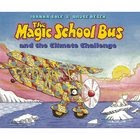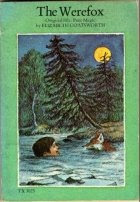Earth Day Reviews
 Farm by Elisha Cooper (US) - (Canada)
Farm by Elisha Cooper (US) - (Canada)(48 pages, Apr. 1 2010, Orchard Books, Age 5-9)
This book follows a family farm, consisting of a man, wife, boy and girl, from early in the spring until late in the fall. Unlike most cutesy-wutesy farm picture books, this one shows the real life running and operation of cultivating the fields, chores, livestock, weather and daily life found throughout the year on a farm. It shows the agricultural lifestyle of a family that lives in a rural area and what the children's lives are like, doing chores before and after school and spending time playing outside and with the animals. The book is quite textual, while not actually having a lot of text per page, there is certainly enough text that little ones may get squirmy listening to this book. Grades 1 to 3 will find the book most useful and entertaining with the higher end finding the most enjoyment. The book is well-written with an engaging voice. My only complaint is the illustrations. I just can't say I'm a fan of Cooper's work. I enjoyed the landscapes and scenes of the buildings but the people with no facial features and animals are not my cup of tea being tiny squiggles that look like they are missing parts and just barely recognizable. Cooper, however, has won awards so obviously I'm in the minority. A good book to celebrate agriculture, rural life and living off the land.
 Vanishing Habitats by Robert Bateman with Nancy Kovacs (Canada)
Vanishing Habitats by Robert Bateman with Nancy Kovacs (Canada)(48 pages, Oct. 1 2009, Scholastic/Madison Press, Ages 9-12)
This book is an absolutely beautiful to look at, every page is filled with glorious paintings by renowned Canadian wildlife artist Robert Bateman. One could simply browse through the book looking at pictures. The text focuses on habitats, all habitats from the common ones you'd expect, rainforests and lakes, to less common ones such as old-growth forests and bogs. Each habitat is a two page spread, a couple are four pages. The text is generally brief and to the point. It does well to describe the habitat and the animals found there but then degenerates into a doom and gloom presentation telling all the gloomy so-called facts from hundreds of years ago to modern times as to what people have done to destroy every single habitat on earth and leaving us with a picture of doom, as frequently no solutions are given as to how to fix the problem (eg. in the entire section on forests, reforestation is not even mentioned once) and if solutions are mentioned it is worded in defeatist language (ie. "...there is *some* hope that what *remains* of the rainforest can be saved.") (emphasis is mine). While telling the doom that is coming to these habitats I also found that there were a lot of "if"s, "maybe"s, "might"s and "probably"s. Not something I'd want to take as fact with language like that. Global warming is also interchanged with the phrase "climate change", using whichever suits the author's purpose best in a given situation. Most people who pick up this title will not have a problem with my concerns. But if, like me, you are looking for environment books without an agenda I wouldn't go so far as to not recommend the book. Knowing what one will find in the text will help to provide discussion. Plus as already stated the information on the habitats and wildlife is very interesting and informative.
 The Magic School Bus and the Climate Challenge by Joanna Cole. Illustrated by Bruce Degen. (US) - (Canada)
The Magic School Bus and the Climate Challenge by Joanna Cole. Illustrated by Bruce Degen. (US) - (Canada)(40 pages, Mar. 1 2010, Scholastic Press, Age 7-12)
Despite a title which could lead one to believe this book will explore the recent revelations about climate change on a level kids can understand, this book is solely a primer on global warming. It is written specifically to proponents of global warming, using the phrase "global warming" exclusively and that group of people will be very happy with all the information presented in this book. However, if you are on the other side of the fence of this issue you will find nothing usable in this book.
All books provided courtesy of Scholastic Canada.


Comments
Post a Comment